What Does Non-Certified Maintenance Technician Do? | Role & Responsibilities
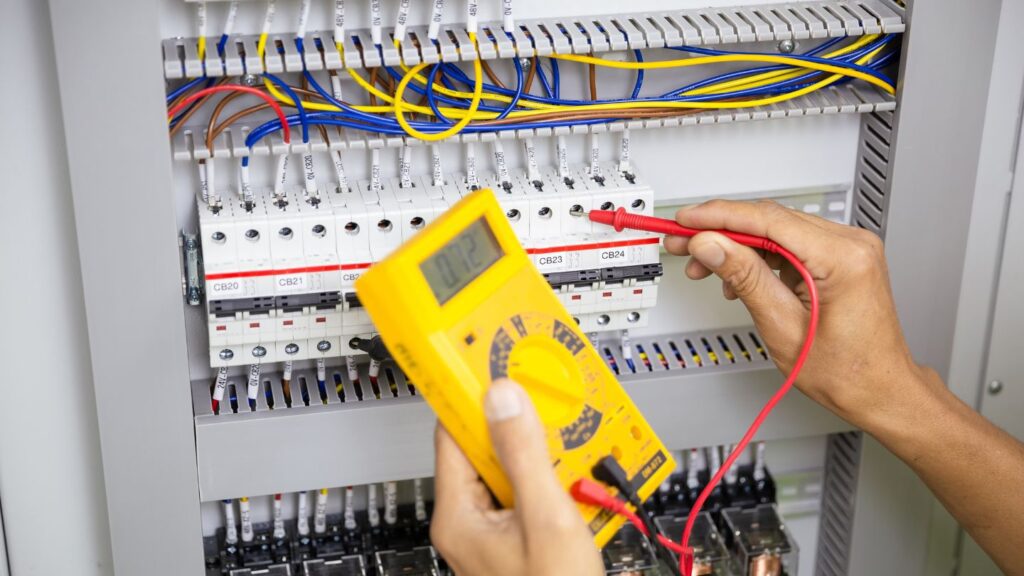
Non-certified maintenance technicians are essential for keeping buildings, grounds, and equipment in good working order. They conduct routine inspections, fix breakdowns, and perform preventive maintenance, all without requiring formal certification. This blog delves into their daily tasks, necessary skills, and working conditions, providing a clear picture of what non-certified maintenance technicians do.
Key Takeaways
- Non-certified maintenance technicians are essential for maintaining and repairing facilities, performing diverse tasks like inspections, troubleshooting, and preventive maintenance.
- The role requires a blend of basic skills such as problem-solving and physical endurance, as well as technical expertise in systems like HVAC, plumbing, and electrical maintenance.
- Career advancement opportunities are available through additional training and certification, with the job market steadily growing due to increasing demand for skilled maintenance workers.
Role of a Non-Certified Maintenance Technician
Maintenance technicians without certification play a vital role in the upkeep and repair of buildings, their surroundings, and equipment. Employed on a full-time basis, they frequently concentrate on specific types of facilities like high-rise office buildings or residential complexes that require an extensive skill set, including knowledge of electrical systems and HVAC maintenance proficiency. The job is suited for individuals who have an affinity for hands-on repairs and tackling technical challenges while enjoying significant autonomy and experiencing low levels of workplace stress. Within this domain, building maintenance technicians are key contributors whose capabilities can be developed with specialized industrial maintenance training.
In executing their duties, these professionals draw upon varying degrees of experience as well as personal expertise, which influences how they manage the complexity present within the properties they service. They undertake a variety of tasks, such as ensuring proper ventilation system functionality and conducting regular structural repairs. Hence, it plays an indispensable role in keeping different premises operational.
The diverse nature, coupled with the necessity for innovative problem-solving, renders this profession attractive to many people seeking fulfilling employment opportunities.
Daily Responsibilities
The role of a non-certified maintenance technician encompasses a broad spectrum of critical functions. Among their primary duties is the execution of routine maintenance tasks such as:
- Conducting systematic inspections and evaluations to detect and resolve equipment issues
- Preventing damage to property
- Upholding safety standards
- Ensuring seamless operational performance
These technicians are integral in addressing sudden mechanical failures and emergencies that arise within their daily scope of work. Maintenance technicians adeptly diagnose problems with machinery and infrastructure, applying an array of tools and techniques for restorative repairs. They also carry out preventive maintenance assignments aimed at enhancing overall efficiency while curtailing potential breakdowns.
Comprehensive documentation underscores every facet of the maintenance technician’s job responsibilities. Meticulously logging repair undertakings serve not only as a historical record but also aids in orchestrating forthcoming upkeep endeavors. Their swift actions and support capabilities play a pivotal role in cultivating tenant satisfaction, thereby solidifying them as vital components within efficient property administration frameworks.
Required Skills for Non-Certified Maintenance Technicians
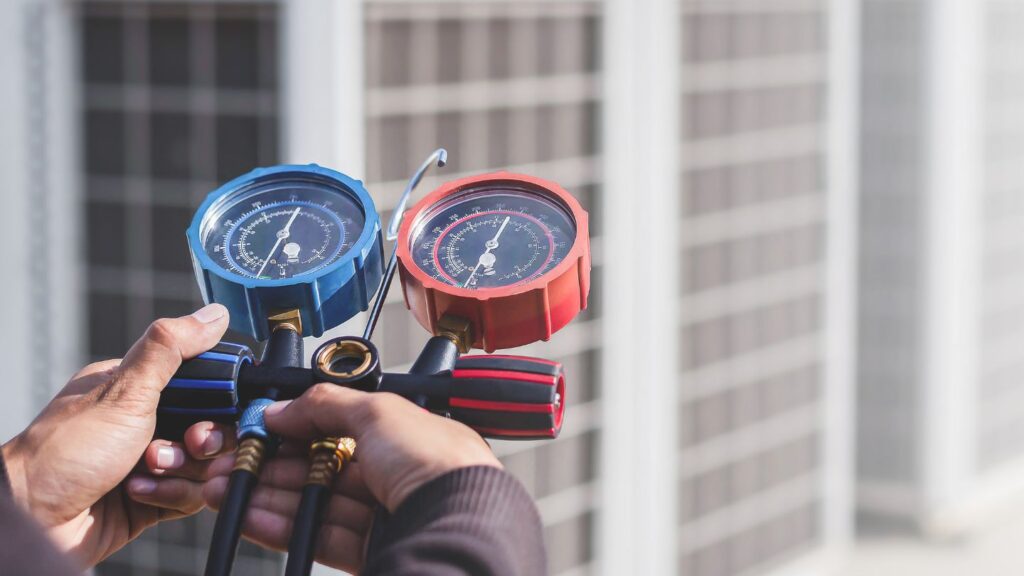
To stand out as a maintenance technician without certification, one must possess a combination of essential and advanced technical skills. These competencies are crucial for performing routine maintenance tasks effectively and resolving various technical problems.
Subsequent segments will explore the core and advanced abilities necessary for someone in this position.
Basic Skills
A solid grasp of fundamental skills is crucial for a maintenance technician’s proficiency. The capacity to troubleshoot effectively empowers technicians to swiftly and adeptly tackle complications that arise amidst routine maintenance, preventing minor issues from becoming major problems.
Physical resilience and robust stamina are vital as the job frequently demands manual effort and active movement. Job training on the premises equips technicians with an introductory comprehension of their duties while assisting them in mastering requisite technical skills, necessitating appropriate training for full competence.
To embark on a career in this domain, typically, one must possess communicative abilities along with at least a high school diploma.
Technical Skills
The expertise of a maintenance technician is heavily dependent on their technical abilities. Mastery in dealing with HVAC systems, plumbing fixtures, and electrical setups is crucial for effectively carrying out repairs and upkeep responsibilities. In the modern workplace, having basic computer skills to handle work orders and maintain inventory records has become increasingly important.
In-depth technical training coupled with specific proficiencies related to machinery assembly and troubleshooting are critical for resolving operational challenges adeptly. A robust understanding of technical concepts combined with proficient use of both power tools and hand tools is essential when it comes to rectifying mechanical or electrical issues.
Training and Education
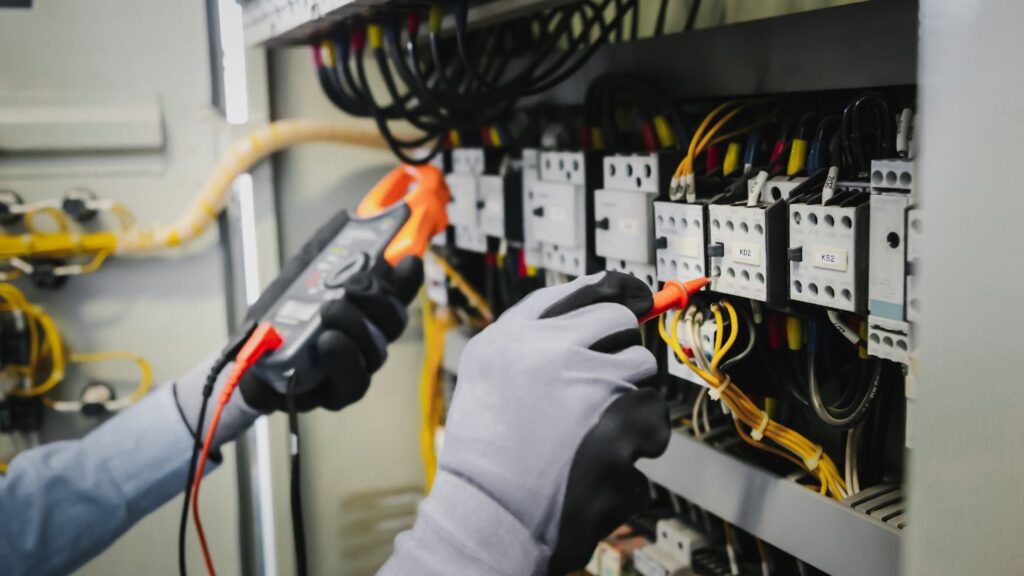
To embark on a career as a maintenance technician, one usually needs to begin with at least a high school diploma, which is the basic educational requirement for most entry-level roles. Furthering one’s education with a two-year specialized degree or technical schooling can lay down an important foundation of crucial skills. Newly hired technicians often receive on-the-job training that allows them to develop their abilities while working in actual job situations.
Taking online courses designed to improve technical skills ranging from problem-solving to advanced equipment care proves advantageous for those aiming to bolster their technical expertise and employment options. Apprentice-like experiences under the guidance of seasoned technicians provide hands-on knowledge and insights essential for climbing the professional ladder.
Securing relevant certifications can markedly improve employability and standing within this field. Credentials such as becoming a certified maintenance and reliability technician or earning certification specific to apartment maintenance work pave the way toward more lucrative positions and remuneration prospects. A commitment to continuous learning coupled with adherence to current safety regulations constitutes key factors in ensuring ongoing success within any maintenance job role.
Work Environments
Maintenance technicians who lack certification may find themselves employed across diverse environments, including educational facilities, hospitals, and hotels. Their duties are influenced by their work setting and could entail the upkeep of multiple edifices within a given locale, like an apartment complex or university grounds. This variation brings dynamism and challenges to their role as each day presents different tasks.
These technicians must be versatile enough to perform in both outdoor and indoor settings due to the broad range of skills required for the job. In larger organizations, they might handle everything from HVAC systems maintenance to addressing plumbing and electrical concerns—responsibilities that are crucial for ensuring seamless operations within those institutions. Consequently, working in such assorted conditions offers them both satisfaction and rigor in their professional lives.
Challenges Faced by Non-Certified Maintenance Technicians
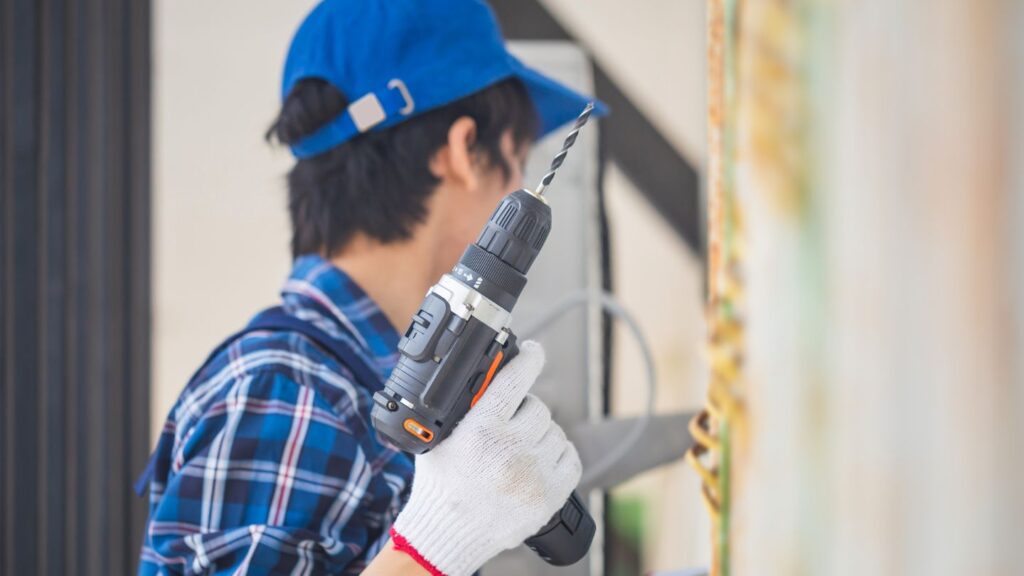
Prior to certification, maintenance technicians may encounter numerous hurdles in their roles. They are often tasked with tackling complex technical issues without the advantage of formal education, which requires a deep comprehension of safety protocols to maintain a safe work setting. Staying abreast with constantly changing safety regulations is yet another difficulty they face when lacking certifications.
Subsequently, non-certified maintenance professionals must navigate these challenges.
- Troubleshooting intricate mechanical problems devoid of certified training
- Ensuring adherence to rigorous safety measures for workplace protection
- Persistently updating knowledge of current and new safety regulations
Efficient time management constitutes an additional key obstacle as these technicians strive to juggle multiple duties and client needs effectively. The pressure of tight schedules may occasionally impede the thorough completion of maintenance assignments, accentuating the need for meticulous attention throughout their tasks.
Regardless of such obstacles faced by non-certified personnel, those who possess skilled craftsmanship remain vital in upholding operational excellence and security across various infrastructural assets.
Career Growth Opportunities
Career advancement opportunities for maintenance technicians without certification are quite favorable. Taking on a role such as a maintenance supervisor is one possible avenue that necessitates not only proficiency in current job responsibilities but also an ongoing dedication to learning new skills. Career progression can be significantly enhanced by gaining additional training and acquiring certifications.
By specializing in areas like electronics, machinery repair, and HVAC systems or obtaining the necessary plumbing maintenance training required for licensure in certain regions, maintenance technicians can unlock Career prospects within specialized fields of work. Credentials such as becoming a Certified Maintenance and Reliability Technician or earning the Certificate for Apartment Maintenance Technician serve to confirm professional expertise and bolster chances of securing employment.
With anticipated steady growth in demand due to increased mechanization across industries combined with the persistent need for competent workers skilled at upkeep tasks, there lies robust potentiality regarding career trajectory amongst those engaged in the field of maintenance. It remains imperative that aspiring professionals nurture relevant skill sets and attain appropriate certifications should they wish to climb higher on their vocational ladder.
Salary Expectations
Compensation for maintenance technicians without certification varies depending on their experience, location, and specialized credentials. Entry-level positions typically offer modest starting salaries, while more experienced technicians with certifications can expect higher pay. Hourly wages for this role provide a solid earning potential for individuals starting their careers.
Experienced professionals with certifications tend to earn significantly more, reflecting their expertise and skills. Salary levels are also influenced by factors like job opportunities in the chosen industry and overall career prospects, making this a rewarding occupation with promising benefits.
Importance of Non-Certified Maintenance Technicians in Property Management
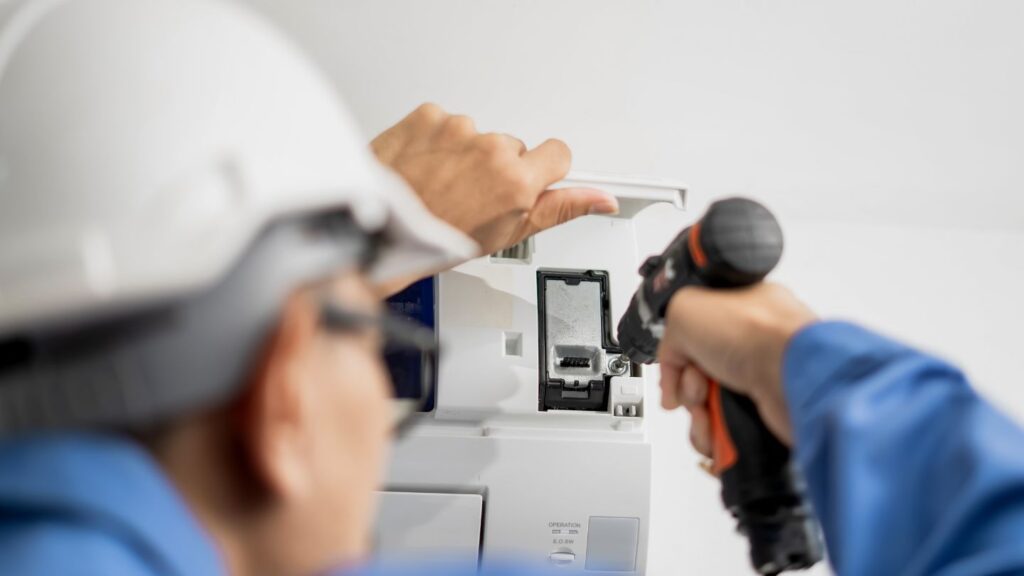
Maintenance technicians without certification play an essential role within a property management maintenance department. Their duties include the upkeep and repair of multiple facilities, guaranteeing that all systems and equipment operate as intended. This position is crucial for keeping tenants content by swiftly responding to maintenance issues and maintaining a pleasant living space.
These individuals are invaluable to the realm of property management due to their technical abilities coupled with strong communication skills. The scope of a maintenance technician’s responsibilities goes beyond basic fixes. They are instrumental in upholding the condition and efficiency of properties, thereby cementing themselves as integral members of the property management workforce.
To Conclude
Non-certified maintenance technicians play a vital role in keeping properties functional, safe, and well-maintained. From handling routine maintenance tasks to addressing complex technical issues, their contributions are indispensable to effective property management. For those who enjoy problem-solving and technical challenges, this profession offers not only career growth but also opportunities for hands-on learning and development.
At OnSite Property Solutions, we specialize in connecting skilled maintenance technicians, certified or non-certified, with the right job opportunities around Atlanta. Our expertise in certified maintenance technician staffing around Atlanta ensures that both technicians and property managers find the perfect match for their needs. Additionally, we provide access to training and career advancement tools that help technicians thrive in their roles. Contact us today to learn how we can help with your staffing or career needs!
Frequently Asked Questions
What is the minimum education requirement for a non-certified maintenance technician?
The minimum education requirement for a non-certified maintenance technician is a high school diploma. However, pursuing additional technical training and certifications can significantly improve your job prospects.
What types of settings do non-certified maintenance technicians work in?
Non-certified maintenance technicians typically work in diverse environments such as hotels, hospitals, educational institutions, and apartment complexes, performing a range of indoor and outdoor maintenance tasks.
How can non-certified maintenance technicians advance in their careers?
Non-certified maintenance technicians can advance their careers by obtaining additional training and certifications while specializing in areas such as HVAC or plumbing.
This proactive approach can position them for roles like maintenance supervisors.

